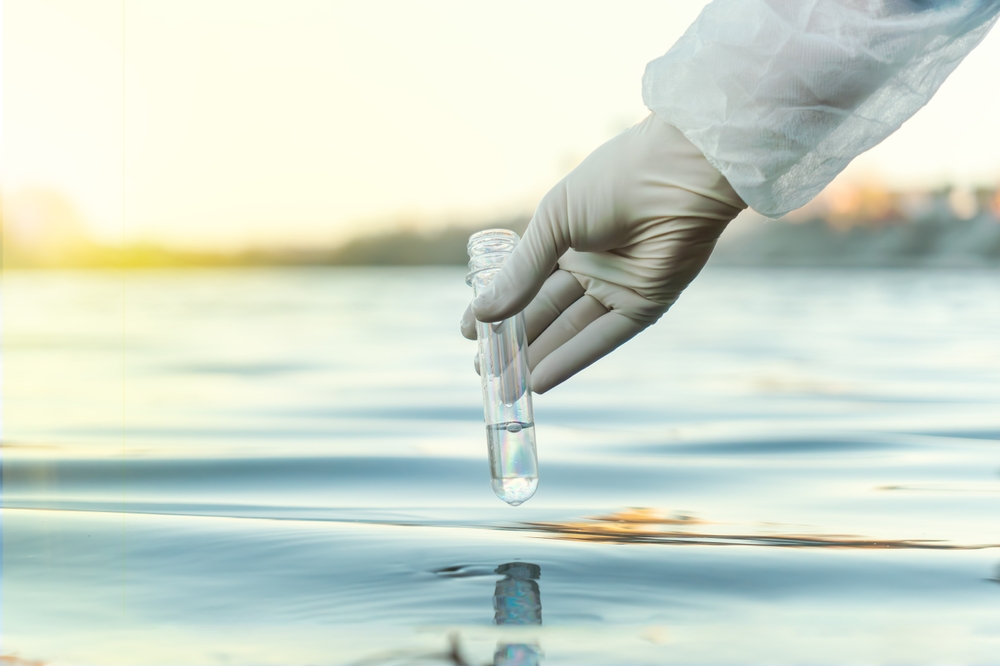ISO 17025 QUALITY MANAGEMENT SYSTEMS FOR TESTING AND CALIBRATION LABORATORIES
ISO 17025 is an internationally recognised standard for the management of testing and calibration laboratories. It enables laboratories across a wide range of sectors to demonstrate that they are competent, that the results they generate are reliable and accurate.
We can help you to establish and implement your laboratory quality management system, either from scratch or by formalising and organising processes you already have in place. Together we can make sure you gain (and/or retain) your ISO 17025 accreditation.
ISO 17025 is the go-to standard if you want to demonstrate the competence of your laboratory or remote testing operations. It doesn’t matter whether you are testing steel, concrete, tools, machinery, medical devices, toys, in fact any product or material, this is the gold standard.
The standard has two main application areas: industrial testing and calibration of measuring equipment. In both cases the aim is to promote confidence in the way a laboratory operates and the controls it has in place to ensure the accuracy of test/calibration results. This includes aspects such as sampling and test methods, calibration procedures, data management and reporting. With an ISO 17025 accreditation you project confidence that you are able to conduct consistently valid and traceable tests and calibrations that provide accurate and reliable results.
ISO 17025 covers the detailed requirements for the organisational structure, human and physical resources, and laboratory process activities. Due to the nature of testing and calibration work, naturally there is a strong emphasis on accuracy, impartiality and confidentiality. It sets out over-arching controls for the laboratory management system and follows the principles of ISO 9001. There are two ways to implement the standard - imaginatively named Option A and Option B. Option A assumes you’re starting from scratch, Option B allows you to use your existing ISO 9001 system as a leg-up.
We can work closely with you throughout the process to navigate the detailed requirements and help you to prepare for UKAS accreditation with confidence.
ISO 17025 is relevant to you if you are looking to demonstrate the quality and competence of your laboratory, gain and maintain accreditation, and to secure the benefits of an effective and robust management system.
If you carry out laboratory testing, calibration, sampling or measurement services this standard is for you. Whether you are in healthcare, academia, research & development, environmental, chemicals, consumer products, forensics, food, water or any other testing arena, you need your customers to have full confidence in your methods and results.
Accreditation to this standard demonstrates the technical competence and quality of your operations, results, reports & certificates, and is recognisable - and trusted - both nationally and internationally.
Note: Medical laboratories will find that ISO 15189 is more specific for their needs as it aligns with best practice principles for risk management and medical laboratory safety as well as core disciplines for effective medical laboratory management.
In the laboratory sector, it’s quite simple. You either have UKAS accreditation or you don’t. UKAS is the only game in town and ISO 17025 may be the only standard in town.
Smart laboratory managers know they won’t make headway with their commercial and growth objectives unless they are accredited. Quite often, the clients that come to us haven’t even moved into their premises, yet UKAS is already on their radar. Without accreditation to ISO 17025 many potential customers will simply not be able to place their business with your laboratory.
Your competitors are moving at speed. They know how long it takes to get a UKAS application together, enter the queue for the first audit, then progress through the stages before accreditation can be granted. You may not need accreditation right now, but you need to start the process immediately if you want your approval within the year.
You or your parent company may perhaps already have ISO 9001 certification in place which describes a quality management system, however as a generic standard ISO 9001 does not extend into evaluation of the technical competence of your laboratory, its personnel and operation. Therefore, you will ultimately find yourself falling short against competitors who DO have their ISO 17025 accreditation in place.
It's never too early to start thinking about your management system, ISO 17025 and UKAS accreditation. Whether you are in set-up, go-live or upgrade mode, QFactorial can provide you with a roadmap, tools, project management and successful audit outcomes.
We are, first and foremost, a quality management consultancy. And we are really keen on the consulting part. By engaging with us you can be assured we will listen carefully to your story and understand the details of what you want, and what you need (which are not always the same thing!). Our consultants can then offer you a uniquely tailored solution. We're Quality People, and we understand how to bend and shape the ISO framework to add value to your business.
The latest 2017 version aligns with ISO 9001 and other standards which draw on the process approach and the need to identify and address risks and opportunities. We have extensive experience in both ISO 9001 and ISO 17025 which means that we can help you whatever your starting point and whatever your needs and challenges. Whether you are looking to achieve ISO 17025 from scratch, or to build on an existing foundation of ISO 9001, or indeed if you are already ISO 17025 accredited but feel that your system needs improving, we can help you. With our help, you can have a practical, effective quality management system which satisfies the standard and benefits your business.
The standard sets out the key requirements for the competence, impartiality and confidentiality of laboratories, including legal structure, management processes, technical operations and support services. It is effectively in tow parts, covering technical and management processes. The latter can be dealt with by an existing ISO 9001 certification.
There are detailed requirements for managing resources, including personnel, facilities, equipment, systems and support. A key focus is on selecting and training personnel to be competent, impartial and verified as able to carry out specific laboratory activities. Other important topics include environmental conditions, instrumentation, software and standards. This includes test methods – also known as standard operating procedures (SOPs) and reference standards. There is an emphasis on establishing traceability of results and associated calibrations to national standards, including controls over externally provided products and services that may be incorporated into or support the laboratory’s activities.
The standard describes the process requirements from the input of requests, tenders and contracts, the selection and verification of test methods used – including validation of non-standard methods – sampling, and handling of samples. Evaluation of measurement uncertainty is considered along with the requirements for monitoring and ensuring the validity of test results, and for ensuring accurate and clear reporting. Information management is addressed, including maintaining integrity of technical records, data and management information (e.g. LIMS). In line with ISO 9001, there is requirement to manage nonconforming work and implement effective corrective action.
Overall, this standard provides the basis for establishing and maintaining an effective laboratory management system. Whatever sector you support, with our extensive knowledge of the standard and an eye to the specific needs and benefits for your business we can support you to build and maintain a robust, effective, and compliant system for your laboratory.
Whatever stage you are at we can help you. Whether you are just starting your laboratory or have an established facility - or facilities - already certified as ISO 9001, or maybe you are working towards your ISO 17025 accreditation or even have it in place but feel it needs to be more effective.
The first step towards achieving compliance – wherever you are on your journey – is to identify any gaps between the policies, processes, and procedures you currently have in place compared to the requirements of ISO 17025, and to develop an action plan for implementing any new or amended requirements. We can support you, focusing on what you currently have, what can be adapted or improved, what you may need to add or change, and what you will need to document. With our extensive knowledge and experience we can help you to develop and improve your processes so that your system not only gets you through the USAS assessment, but also becomes an effective tool for continuous improvement.
In the UK the accreditation process for ISO 17025 is administered by UKAS, the UK’s National Accreditation Body for certification, calibration, inspection, and testing services. UKAS accreditation is recognised by government, industrial and academic organisations, who require confidence in their choice of testing or calibration laboratory.
The stages in the accreditation process include UKAS application and gap analysis submitted to UKAS (with evidence), gap closure (actions and documents), on-site/remote assessment by UKAS, corrective action, recommendation and accreditation.
QFactorial can help you to document your system, improve your processes, audit those processes, fix any problems, train your people. We can help you compile your initial UKAS application, carry out the gap analysis, and support you through all the stages through to successful accreditation – and beyond.
Anything worth having is going to involve some work. Getting accredited to ISO 17025 by UKAS needs planning, commitment and resources. The amount of work involved will depend on factors such as your current stage of development, the size of your organisation, the number of facilities and the number of people in your team. We will work closely with you to identify your gaps and synergies against the requirements of the standard, and to develop a practical action plan to achieve your accreditation in the most efficient way. Our effective project management and extensive know-how will support your schedule and budget with resources tailored to help you at every stage.
Whether you are approaching ISO 17025 for the first time, or you already have ISO 9001 in place, there are requirements to define and maintain your specific laboratory policies, processes, procedures and records. You will need to document such aspects as roles and responsibilities of personnel and the competence of your staff to carry out specific laboratory activities. You will need to be able to evidence how your system meets the requirements of each of the clauses in a clear and consistent way through all the standard’s requirements for documented information and results. You will need to address requirements for traceability and the detailed laboratory process and consider - either within your ISO 17025 system or in association with your ISO 9001 system - the detailed laboratory management system requirements. These include the identification of risks and opportunities for improvement and the actions to be taken, as well as other aspects such as corrective actions, internal audits, management review and continual improvement.
The key is to maintain sufficient documentation to demonstrate the effectiveness of your management system, how you actually do things, what processes you use, who is involved and how you record your results. QFactorial can help you to design, document, implement and manage your ISO 17025 system to support your journey to accreditation - so that it meets the requirements of the standard and works for your business.
How long is a piece of string?
You’re not a cookie-cutter company, so we don’t deal with cookie-cutter prices. But let’s talk about what makes up the cost of UKAS accreditation:
-
Finding out where you’re starting from, where you need to be and how to get there. (GSAAP).
-
In house resources to manage and deliver the work plan.
-
External consultants to help with parts of the plan that are outside your skills and experience (or time).
-
UKAS fees.
-
Maintenance of your accreditation. Not just polishing the frame.
Depending on the size, scale and complexity of your organisation, you may need more or less consultancy time. We can work with you based on a specific number of days at an agreed rate; carefully scoped, fixed price work packages; or a combination of both to suit your budget.
Laboratory approvals are different to most ISO management system approvals in that they involve direct accreditation rather than certification by an accredited certification body. In the UK the accreditation process for laboratories is administered and delivered directly by UKAS, the UK’s National Accreditation Body for certification, calibration, inspection, and testing services.
This means that the task of selecting a certification body is not required because you will be dealing directly with UKAS, so it’s more about appointing than selecting.
We’ve been in this game a long time now and have developed a proven system of tackling the requirements of ISO accreditation with you. We begin with our Gap & Synergy Assessment with Action Plan (GSAAP for those acronym lovers) which shows us how close you already are to the standard requirements. We find, usually, that there are many more synergies than you’d expect - you’re running a successful business after all, aren’t you?
This gives us a head-start when creating the management system and gives you the opportunity to get to know your consultant and confirm you enjoy working with us before embarking on the good ship accreditation. At this point you’re able to take the GSAAP and run, but of course we’d like to think you’d want to keep working with us to help you with the application, documentation and implementation.
We help share the load by reviewing what you create, or creating things for your review – quality/laboratory manuals, process maps, policies, SOPs etc. Once this is all done, there’s a desktop audit by UKAS to check all your documentation complies with the rigours of your chosen standard - and yes, we can be involved in this as your advocate, interpreter, translator or referee. This stage is all about ‘saying what you do’ as a business. But you can’t just say what you do, you also need to ‘do what you say’. The next stage is all about those documents coming off the page and becoming a ‘real’ entity in your business. The burden of proof is on you to show that your system, as you’ve set out in your quality/laboratory manual, is working as you say it should be. It takes time to gather this body of evidence, anywhere from 3-6 months, and this evidence can take various forms. Our role during this stage is to provide training, mentoring, internal audits and management reviews to ensure your business is ready for the final audit. It’s entirely normal for a few ‘nonconformities’ to arise, especially at this stage, but we’ll be there to help you deal with them and make sure you get that recommendation for accreditation.
At this point you’re able to take your new ISO certificate, pat yourselves on the back for a job well done and send us on our merry way, happiness all round. However, we recommend you stick with us for the first few months. Why? So we can help establish quarterly health checks to keep things ticking over. Unlike most ISO approvals where the first surveillance audit is 11 months in the future, UKAS will return after 6 months to re-audit and check that you are still implementing your system and compliant with the standard. You don’t want to be thrown into a full-blown panic as the surveillance visit looms and you realise things have gotten a little wobbly. With us on board that little while longer, you can be sure that the gears are turning and the processes are followed so when the auditor returns, you’re armed and, if not dangerous, at least prepared.


